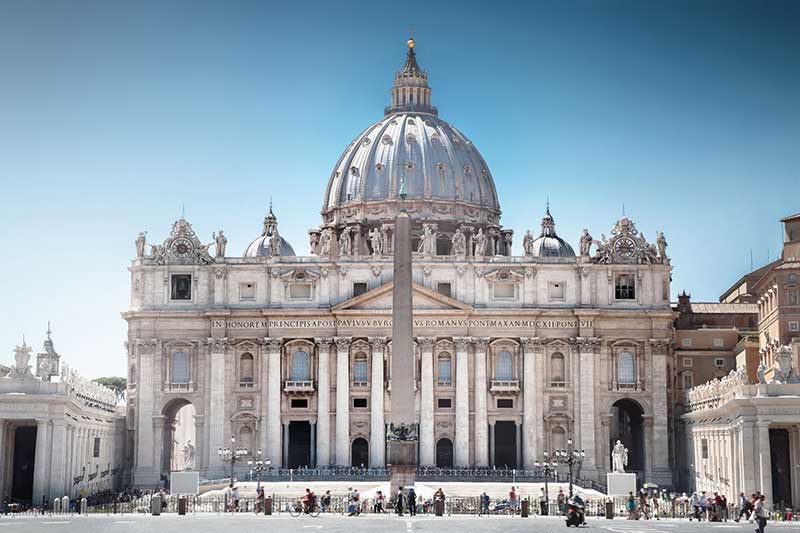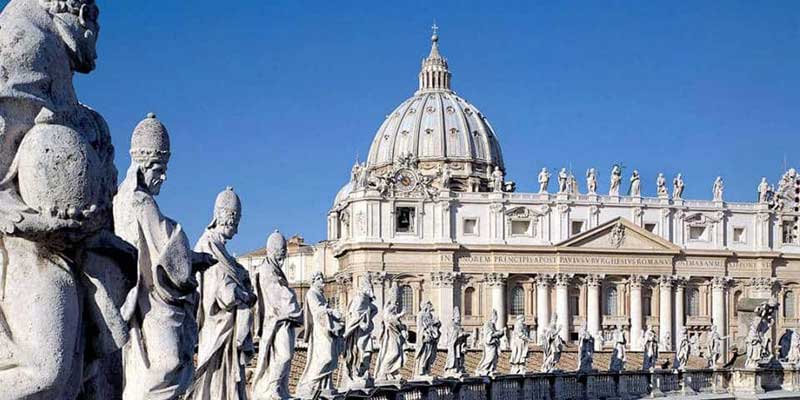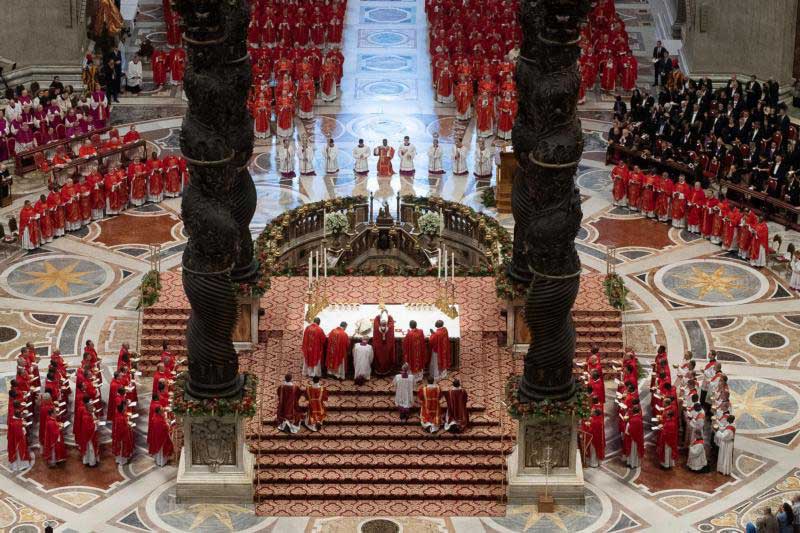 St. Peter’s Basilica, located in Vatican City, stands as one of the most iconic and breathtaking structures in the world. A testament to human artistry, devotion, and architectural brilliance, the basilica draws millions of visitors each year, leaving them awe-inspired by its grandeur and spiritual significance iqnect.
St. Peter’s Basilica, located in Vatican City, stands as one of the most iconic and breathtaking structures in the world. A testament to human artistry, devotion, and architectural brilliance, the basilica draws millions of visitors each year, leaving them awe-inspired by its grandeur and spiritual significance iqnect.
Introduction
Nestled within the heart of Rome, Italy, St. Peter’s Basilica is a marvel of religious and architectural history. It is not merely a place of worship but a symbol of the Roman Catholic Church’s influence, spiritual grandiosity, and artistic legacy.A Historical Overview of St. Peter’s Basilica
The Origins of St. Peter’s Basilica
The origins of St. Peter’s Basilica can be traced back to early Christianity. According to tradition, the basilica is built upon the tomb of Saint Peter, the foremost of Jesus Christ’s apostles. The original structure was constructed during the reign of Emperor Constantine in the 4th century AD, replacing a smaller shrine that had been erected over the apostle’s grave.The Renaissance and Michelangelo’s Contribution
The basilica we see today owes much of its magnificence to the Renaissance era. The renowned artist and architect, Michelangelo, played a pivotal role in shaping the basilica’s design. His genius brought about significant alterations to the original plan, particularly the iconic dome, which stands as a testament to his architectural prowess.
Architecture and Design
The Façade and Exterior
The façade of St. Peter’s Basilica is a sight to behold. Adorned with colossal columns, intricate sculptures, and majestic bronze doors, it reflects the splendor of Renaissance architecture. The stunning central balcony, or loggia, is where the Pope delivers his papal blessings and addresses the crowds gathered in St. Peter’s Square.The Interior and Nave
Stepping inside, visitors are greeted by a vast and awe-inspiring interior. The soaring nave, adorned with magnificent artworks and adorned chapels, exudes a sense of divine beauty. The lavish decorations and intricately designed altar create a captivating ambience for religious ceremonies.The Dome and Its Symbolism
The crowning glory of St. Peter’s Basilica is its majestic dome, designed by Michelangelo. The dome’s height and scale inspire a sense of reverence, symbolizing the bridge between the earthly and the divine. Climbing to the top rewards visitors with breathtaking panoramic views of Rome.Art and Masterpieces
Michelangelo’s Pietà
One of the most revered artworks within the basilica is Michelangelo’s Pietà. This masterpiece depicts the body of Jesus Christ in the arms of his mother, Mary, after the crucifixion. The sculpture’s intricate details and emotional depth evoke a profound sense of compassion and sorrow.Bernini’s Baldacchino
Gian Lorenzo Bernini, another prominent artist of the time, contributed the breathtaking Baldacchino—a towering bronze canopy that stands over the main altar. The Baldacchino’s intricate details and baroque design make it a remarkable work of art.The Canopy of St. Peter’s Throne
Above the high altar stands the towering Canopy of St. Peter’s Throne, also designed by Bernini. This colossal bronze structure symbolizes the authority of the papacy and serves as a focal point during liturgical celebrations.
Religious Significance and Pilgrimages
The Papal Functions and Liturgical Celebrations
St. Peter’s Basilica is the heart of the Roman Catholic Church and serves as the venue for important papal functions and liturgical celebrations. These events draw pilgrims and visitors from around the globe, seeking to witness the Pope’s blessings and experience the spirit of faith.The Holy Door and the Jubilee Year
Every 25 years, St. Peter’s Basilica becomes the site of the Holy Door, a symbol of God’s mercy and forgiveness. Pilgrims from all walks of life undertake journeys to pass through the Holy Door during the Jubilee Year, seeking spiritual renewal and indulgence.Secrets and Curiosities
The Grottoes and Papal Tombs
Beneath the basilica lie the Vatican Grottoes, a series of chapels and burial places for popes. The tombs of several past pontiffs are housed here, adding an aura of mystery and reverence to the underground chambers.The Whispering Gallery
One of the basilica’s intriguing features is the Whispering Gallery. Its unique acoustics allow visitors to communicate in whispers while standing at opposite ends of the gallery, experiencing a peculiar but fascinating acoustic phenomenon.The Confession of St. Peter
At the heart of the basilica, beneath the main altar, lies the Confession of St. Peter—a shrine dedicated to the Apostle’s martyrdom. This solemn spot invites visitors to reflect on the sacrifices made by early Christian leaders.Discover the Magnificent Catedral Metropolitana de la Asunción de María
Visiting St. Peter’s Basilica
Opening Hours and Admission
St. Peter’s Basilica is open to visitors daily, but it’s essential to check the official schedule for specific opening and closing times, as they may vary on special occasions.Dress Code and Security
As a place of worship, modest attire is expected from visitors. Revealing clothing may result in denied entry. Additionally, security measures are in place to ensure the safety of all visitors.Tips for a Meaningful Visit
To fully appreciate the beauty and significance of St. Peter’s Basilica, consider hiring a knowledgeable guide who can provide historical context and spiritual insights.The Vatican City: A Sovereign State
Surrounding St. Peter’s Basilica is the Vatican City, the world’s smallest independent state. With its unique status as the seat of the Roman Catholic Church and a UNESCO World Heritage Site, the Vatican City is a captivating destination in its own right.Conclusion
Exploring St. Peter’s Basilica is a journey through time, art, and faith. The grandeur of its architecture, the beauty of its artworks, and the spiritual ambiance it exudes make it an unforgettable destination for pilgrims and travelers alike.Are There Any Hiking Trails Near St. Peter’s Basilica in Rome?
Are there any top hiking trails in cinque terre near St.
